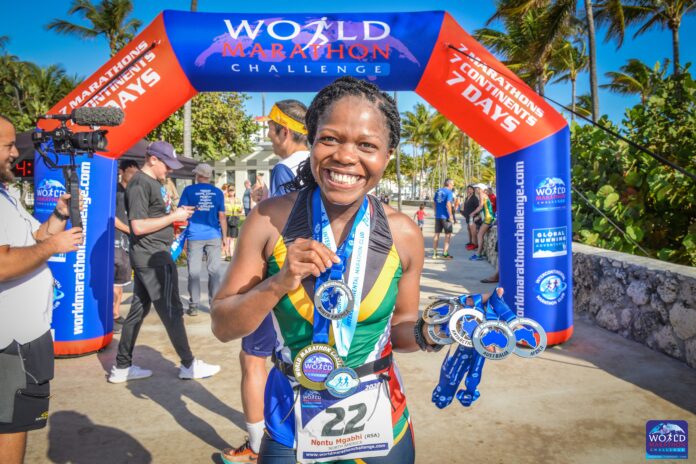
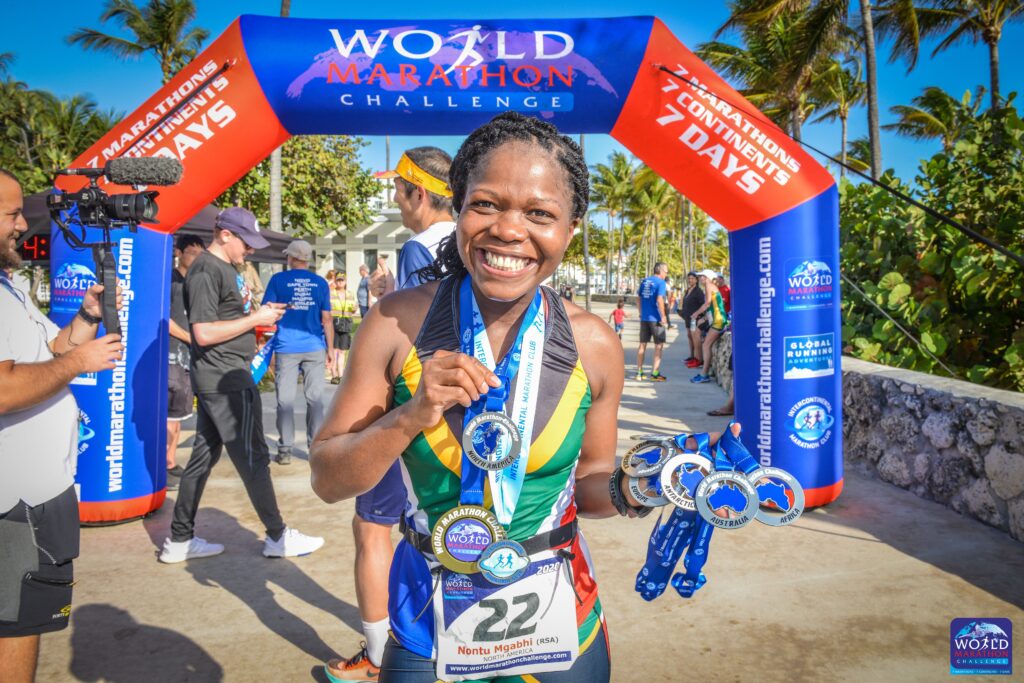
Just weeks after her 35th birthday, Nontuthuko Mgabhi faces the biggest challenge of her life when she runs the 35th edition of one of the world’s iconic ultra-distance footraces – the Marathon des Sables (MDS – the Marathon of the Sands).
And while the race could well be life-changing for the General Manager of Human Resources at Richard’s Bay Coal Terminal in Kwa-Zulu Natal, her participation will undoubtedly change the lives of hundreds of schoolchildren from Khiphinkunzi Primary School in KZN for the better.
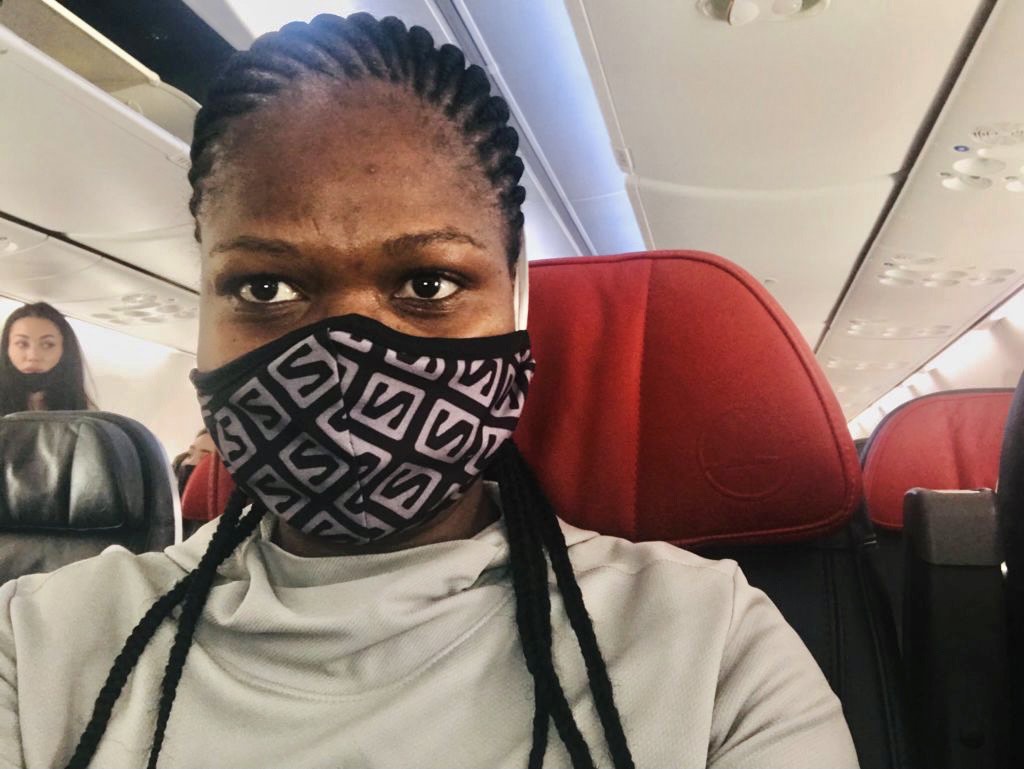
The MDS is unlike any other race. 37 years ago French concert-promoter Patrick Bauer set off on a personal journey across the Sahara Desert, to traverse 350km on foot, alone and without coming across a single village or oasis along the way. He was completely self-sufficient with his 35kg rucksack containing food and water for the journey which lasted 12 days.
Bauer’s desert adventure provided the catalyst for the Marathon des Sable, a footrace which started in 1986 with just 23 competitors to run and walk 250km in six days.
The formula has remained largely unaltered since Bauer’s walk, and although the distance has been shortened to 250km, the speed of traverse considerably increased and the weight of essential equipment reduced, Bauer’s experience in 1984 remains that of the competitors who take up the challenge today – a largely unsupported journey across the hot desert sands (except for the provision of water at 10km intervals and a tent to sleep in), incorporating one ‘ultra’ day of 80km, five days of 30-40km and a celebratory ‘charity day’ finale of just 8km.
And Bauer remains the heart and soul of the Marathon des Sables as the event’s race director.
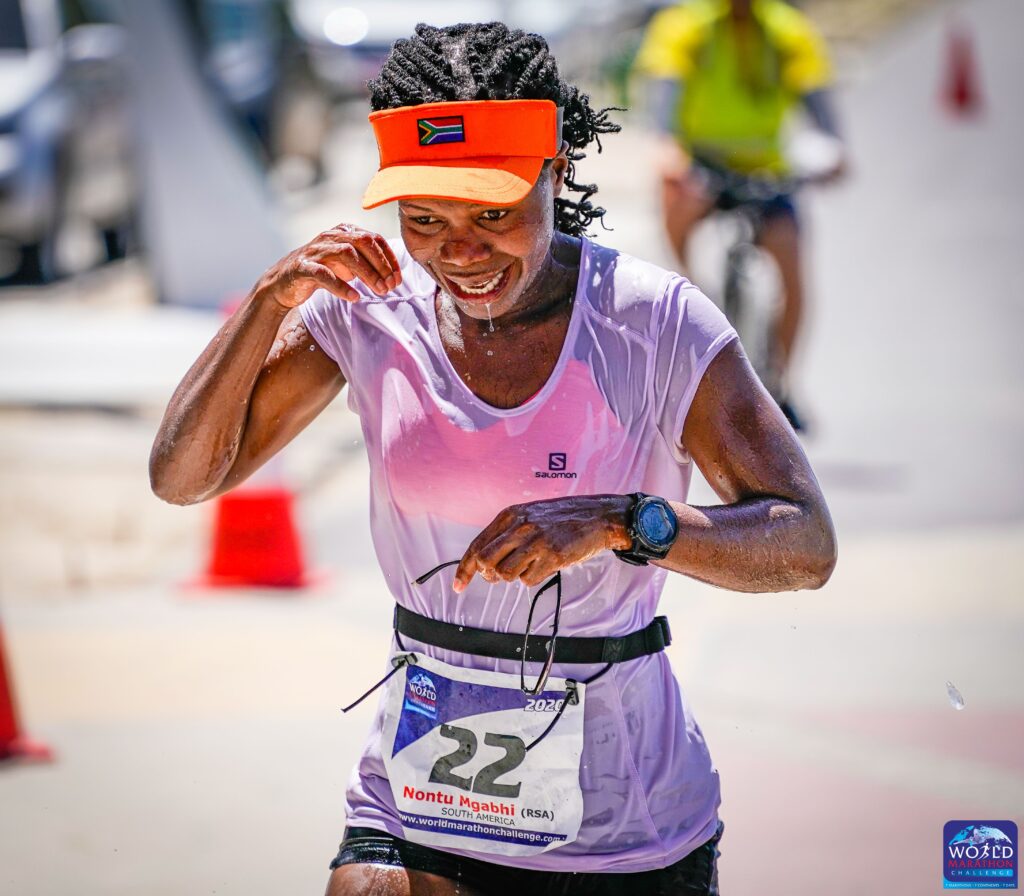
For someone who has never run in a desert, the thought of running 250km in six days across some of the most challenging desert terrain imaginable is a daunting one and the nuggety KZN marathoner admits to being nervous.
“I’ve trained hard for the race over the months, but I’ve never done anything like this!” said Mgabhi, on the eve of her departure. “I’m so looking forward to this adventure, but I’m certainly a little nervous. I’ve been running on the Durban beachfront to past get used to running on sand, but that’s unlikely to be much like the dunes of the Sahara.”
Just travelling to the start might seem a mission for most but Mgabhi, who ran seven marathons on seven continents in seven days early in 2020, appears to be taking it all in her lengthy stride. “I fly to Istanbul and then to Marakesh, where I arrive at 3pm (after 30 hours). From there it’s an eight-hour drive to Errachida on the desert outskirts, where we arrive around 10pm. Then it’s a 4-5 hour drive to the first camp in the desert at the start of the race and we get underway on Monday (4 October).”
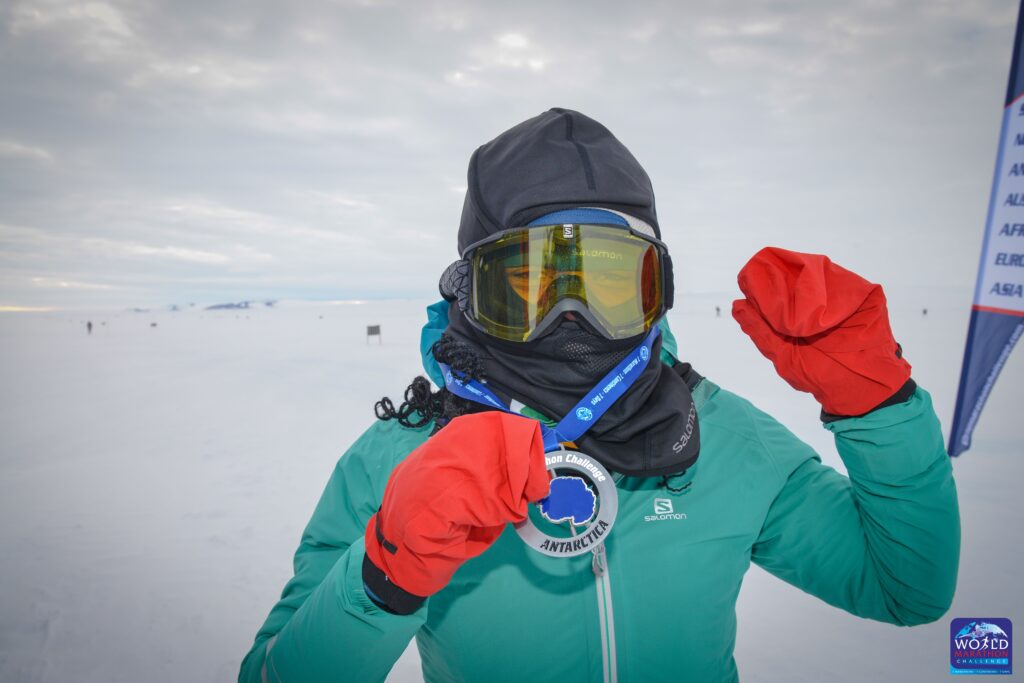
Mgabhi has enjoyed the advantage of being trained by former Zimbabwean, Prodigal Khumalo, now one of the leading road and trail ultra-distance athletes on the continent and he has ensured his charge will be well-prepared for her tough challenge in Morocco.
“Nontu had the best preparation and she is ready for this race,” reflected Khumalo. “The training was brutal but she survived! I’ve no doubt she will do very well at Marathon des Sables.”
Mgabhi began supporting Khiphinkunzi Primary School after participating in the Karkloof 100 miler. Through the race charity, Southern Lodestar Foundation, Mgabhi visited the school, and saw just how much the school was in need. “In particular, there was a desperate need for basic infrastructure,” Mgabhi said. “And I felt I had to do more.
“I was able to raise R1.7 million from the World Marathon Challenge which was sufficient to construct five new classrooms with furniture to replace the totally inadequate structures being used by the school.”
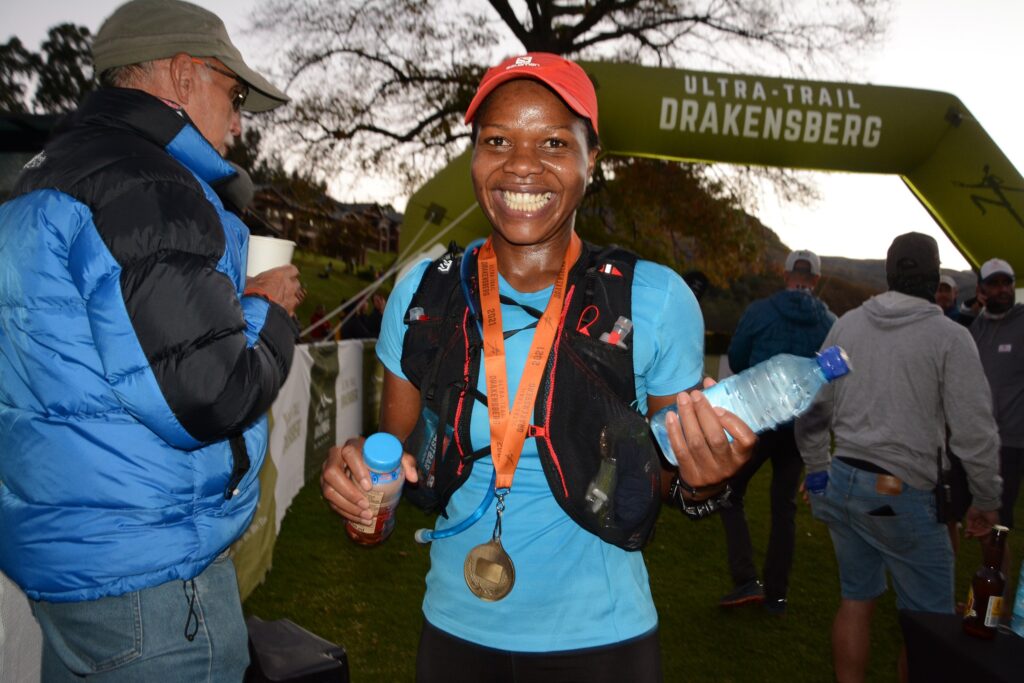
The intervention made a substantial difference to the school, but Mgabhi saw the further challenges and knew she had to respond to the hopelessly inadequate ablution facility and the lack of facilities for the principal and educators.
Adventure and fund-raising go hand-in-hand for Mgabhi and she was immediately attracted to the MDS. “I truly respect MDS,” Mgabhi admits. “Maybe it’s running a race where runners are self-sufficient, each runner carrying a backpack up to 15kg of food, sleeping material and so on. I have never run a stage race where runners are self-sufficient.
“Also running in the desert with extreme heat is a challenge that I respect. MDS is considered the hardest footrace on earth and finishing the MDS will send a strong message of hope to learners at the school and elsewhere: Do Not Give Up!”
“Through MDS, my goal is to raise R1.1 million to build new toilets and a new administration block so the staff won’t have to crowd into one small room, which is currently the case,” Mgabhi explains.
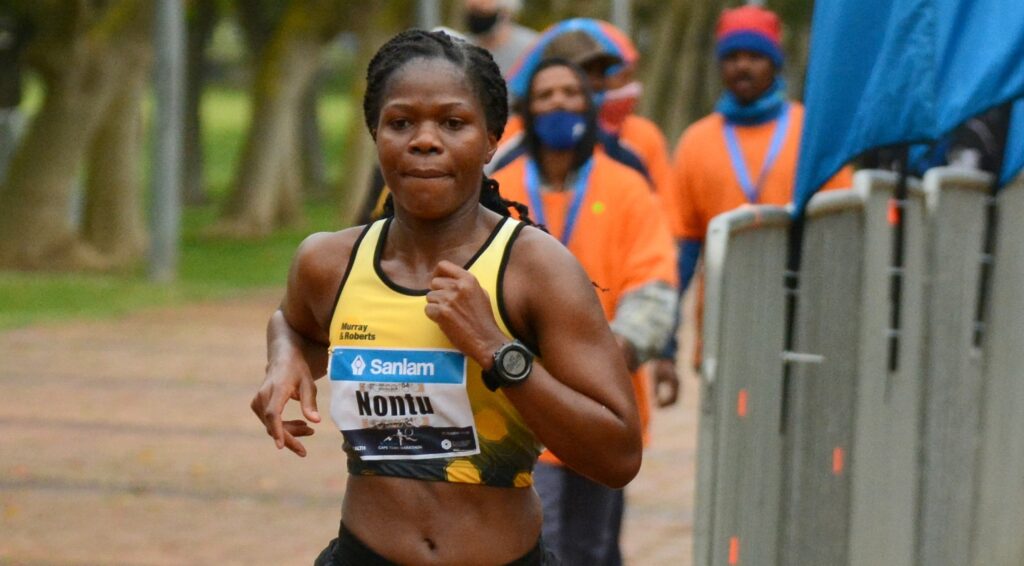
Interestingly, Patrick Sauer and the MDS are also passionate about supporting vulnerable and disadvantaged schoolchildren and has established a charity ‘Solidarite Marathon des Sables’ to provide tangible support to these children. Mgabhi looks forward to contributing to the Moroccan cause through her participation at MDS and hopes to be able to provide synergy between the race’s education support initiative and her own substantial support for schoolchildren at the other end of the continent.
Thus far Mgabhi has raised R750 000 – some distance short of her target, which she believes will be reached during her run. Anyone wishing to support her during her desert challenge and help contribute to the school, should contact her on nontu.mgabhi@icloud.com.
By Stephen Granger
©SPNAfricanews.com


